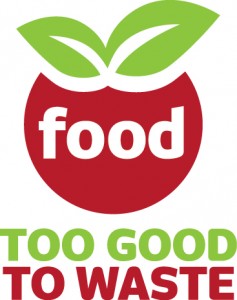 These days it’s easy to get discouraged about the plight of agricultural resources: we see news about agricultural practices that erode soil, poison ecosystems, and deplete groundwater, all of which spell the demise of irreplaceable natural resources. How much longer can we continue to ignore these warning signs? When it comes right down to it, the misuse of the natural resources necessary for agriculture is the surest way to set us up for collapse (just ask these ancient civilizations). If we use up the resources necessary to produce food, there’s no alternative, no repurposing, and no living without. Also, there’s no going back. Let me tell you a story to illustrate this point. Continue reading
These days it’s easy to get discouraged about the plight of agricultural resources: we see news about agricultural practices that erode soil, poison ecosystems, and deplete groundwater, all of which spell the demise of irreplaceable natural resources. How much longer can we continue to ignore these warning signs? When it comes right down to it, the misuse of the natural resources necessary for agriculture is the surest way to set us up for collapse (just ask these ancient civilizations). If we use up the resources necessary to produce food, there’s no alternative, no repurposing, and no living without. Also, there’s no going back. Let me tell you a story to illustrate this point. Continue reading
Themes
-
UVM Food Systems Resources
Blogroll
- Beginning Farmers
- Chelsea Green
- Civil Eats
- CNN Eatocracy
- Ecocentric
- Epicurious Epi-log
- Ethicurean
- Field Notes
- Food + Tech Connect
- Michael Pollan
- New York Times Diner's Journal
- NPR's The Salt
- On Food (Mark Bittman's Blog)
- Politics of the Plate
- Smithsonian Food & Think
- The Greenhorns Blog
- Vermont New Farmer Network
- Women's Agricultural Network


 Romaine harvest in Salinas. The harvester platform moves slowly ahead as the pickers cut heads from the ground and trim outer leaves.
Romaine harvest in Salinas. The harvester platform moves slowly ahead as the pickers cut heads from the ground and trim outer leaves.  As a teenager I remember opening the fridge as soon as I got home. I’d hover there—door ajar, combing the shelves for something to eat. It was a daily ritual even though I’d almost always resort to one of two staples: cereal or toast… okay maybe both. I never gave a lot of thought to leftovers or what food may be going to waste. At that time I was a walking stomach with little understanding of food other than it meeting my hunger demands.
As a teenager I remember opening the fridge as soon as I got home. I’d hover there—door ajar, combing the shelves for something to eat. It was a daily ritual even though I’d almost always resort to one of two staples: cereal or toast… okay maybe both. I never gave a lot of thought to leftovers or what food may be going to waste. At that time I was a walking stomach with little understanding of food other than it meeting my hunger demands.  Let’s face it: it’s unsexy to talk about food waste. Who wants to hear about garbage, refuse, or rubbish? But talk about it we must. Two ineluctable problems loom that will affect your children and your children’s children. The first—and more immediate—is the environmental threat of dumping organic food waste in landfills produces methane, a greenhouse gas 21 times more damaging to the climate than carbon dioxide. Landfills are the largest human-related source of methane in the United States, accounting for 34 percent of all methane emissions. Hard on the heels of the landfill problem is the alarming rise in population. Nine billion people are expected to populate the planet by 2050. How will we feed them?
Let’s face it: it’s unsexy to talk about food waste. Who wants to hear about garbage, refuse, or rubbish? But talk about it we must. Two ineluctable problems loom that will affect your children and your children’s children. The first—and more immediate—is the environmental threat of dumping organic food waste in landfills produces methane, a greenhouse gas 21 times more damaging to the climate than carbon dioxide. Landfills are the largest human-related source of methane in the United States, accounting for 34 percent of all methane emissions. Hard on the heels of the landfill problem is the alarming rise in population. Nine billion people are expected to populate the planet by 2050. How will we feed them?  At a dinner party the other day, I was doing my usual uncomfortable mingling and availing myself of the cheese platter, when I bumped into a causal acquaintance, who, for the sake of this blog, I’ll call Joe. We exchanged pleasantries and somehow got on the subject of “local” food. He said he thought the whole thing was just an “elitist stratification mechanism” and that in his opinion, the masses needed more, not less, abundant, cheap food sources. I said that although I agreed that “local” was being usurped by the “locagentsia” and was reinforcing class boundaries, I did not agree. I said local was important for a host of reasons, from the economic advantages to the importance of food sovereignty (as in, keep your food supply close) and he should expand his thinking. I’m not sure how Joe made this transition, but at this point he erupted into a tirade about local/organic vs. conventional eggs.
At a dinner party the other day, I was doing my usual uncomfortable mingling and availing myself of the cheese platter, when I bumped into a causal acquaintance, who, for the sake of this blog, I’ll call Joe. We exchanged pleasantries and somehow got on the subject of “local” food. He said he thought the whole thing was just an “elitist stratification mechanism” and that in his opinion, the masses needed more, not less, abundant, cheap food sources. I said that although I agreed that “local” was being usurped by the “locagentsia” and was reinforcing class boundaries, I did not agree. I said local was important for a host of reasons, from the economic advantages to the importance of food sovereignty (as in, keep your food supply close) and he should expand his thinking. I’m not sure how Joe made this transition, but at this point he erupted into a tirade about local/organic vs. conventional eggs. 







